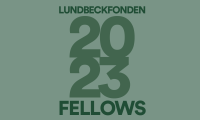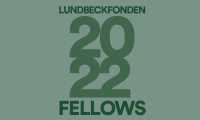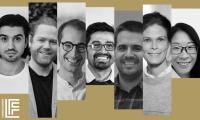Five outstanding young scientists receive Lundbeck Foundation Fellowships
They are in search of completely new knowledge about cancer evolution, gut feelings, the waste disposal system of cells, blood clots in the brain and the influence of genetic variations on proteins. Supported by a Lundbeck Foundation Fellowship, these five dedicated research talents can now devote themselves to their research over the next five years.
Five new Lundbeck Foundation Fellows have just received a research scholarship worth DKK 10 million. This is the twelfth time the Lundbeck Foundation is awarding fellowships and, yet again, the recipients are young researchers, although all are well-established in their own fields.
“Our five new Fellows will have a unique opportunity to conduct targeted and concentrated research over a five-year period and, at the same time, build up a research team and grow as research directors. Their research varies greatly and ranges from blood clots in the brain to the evolution of cancer and gut feelings, but they all have one thing in common – they have the potential to revolutionise our understanding of the field,” says Anne-Marie Engel, Head of Talent & Career Programmes at the Lundbeck Foundation.
The five Lundbeck Foundation Fellows are:

Amelie Stein, assistant professor, Department of Biology, University of Copenhagen
Amelie researches the effect of genetic variations on proteins. Even though we can sequence a human genome in no time at all today, each genome has a large number of variations and we have no idea what they mean. Amelie will be studying the influence these gene variations have on the proteins in our body.
“Only 1% of our genome codes for proteins, but proteins perform the great majority of our bodily functions – such as transporting oxygen through the blood – so I’m studying an extremely important 1%. My aim is to develop methods for predicting how protein variants affect the cell and to be able to pinpoint the ones that cause disease,” she says.
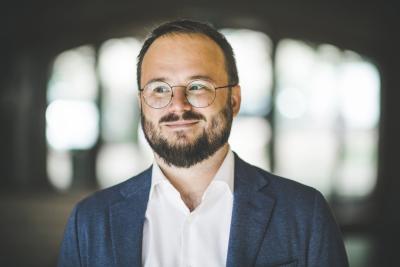
Micah Allen, associate professor, Department of Clinical Medicine, Aarhus University
Micah’s research focuses on our gut feelings. His theory is that our decisions are rarely completely rational and we are strongly influenced by gut feelings. Micah will be investigating whether these gut feelings are actually linked to the signals sent from our inner organs to the brain.
“I’ll be conducting experiments using beta blockers, to see whether the decisions people make differ depending on whether their heart rate is slow or fast. I’ll also be studying patients who’ve had their stomach removed, which involves cutting the vagus nerve that normally sends sensory information back to the brain from the body. It will be really interesting to see whether this diminished body-brain signalling has an impact on our decisions,” he says.
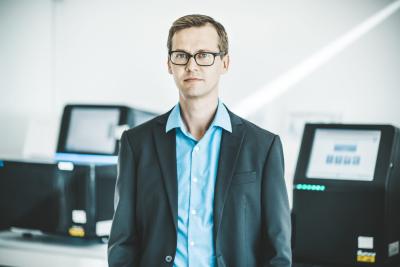
Nicolai Juul Birkbak, associate professor, Department of Clinical Medicine, Aarhus University
Nicolai researches into cancer evolution; in other words, what exactly happens from the time an ordinary cell becomes a cancer cell until it metastasises and, eventually, the patient dies. He will attempt to understand which factors have an impact on the cancer and how the cancer genome changes during the treatment process.
“Ideally, I’d like to end up with a cancer index so that healthcare professionals can look up cancer types and find out how the type of cancer they’re dealing with is most likely to develop. I dream of finding cancer’s Achilles heel. Just think, if we could go to the doctor for an examination in the future and the doctor could say “Don’t worry, it’s just cancer!”,” he says.
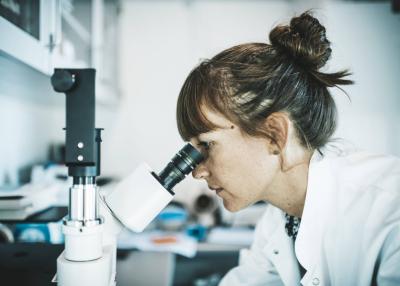
Lisa Frankel, assistant professor, Danish Cancer Society
Lisa’s research focuses on autophagy, a process which could also be called a waste disposal system for cells because it makes sure that cells dispose of their waste products and, at the same time, recycle certain components. Specifically, she will investigate whether autophagy also cleans up cell ribosomes. Ribosomes are small protein factories within the cells. They are the place where our DNA is translated into all of the body’s proteins, and we know extremely little about what happens to the ribosomes when they have finished their job, grown old and no longer work.
“Autophagy is necessary to keep our cells fit and healthy, and we need to improve our understanding of why faults in autophagy lead to the development of diseases such as cancer. My hypothesis is that the cells clean up the ribosomes using autophagy – as they do with other constituents. I’ll be examining how this clean-up works and its consequences for cells’ production of proteins. Ultimately, I’d like to understand the significance of this for the basic cell functions that may contribute to the development of cancer,” she says.
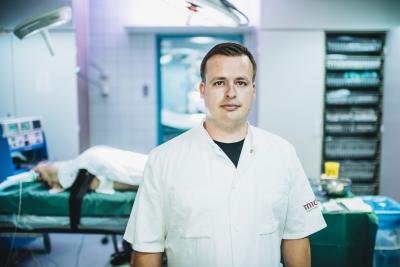
Christoffer Laustsen, associate professor, Department of Clinical Medicine, Aarhus University
Christoffer researches into cerebral thrombosis. When a blood clot forms in the brain, the metabolism of the brain cells changes. This change is crucial to our understanding of the processes in the brain before, during and after thrombosis, and Christoffer will use a new scanning technique to study this at a cellular level.
“When a blood clot forms in the brain, there’s a very small window of time before part of the brain perishes. So, it’s important to act and treat quickly, and this is easier if we understand the basic mechanisms of the brain cell metabolism. If we improve our understanding, we’ll improve our predictions and, ultimately, we’ll get better at treating the condition and ensuring that as little of the brain as possible suffers damage,” he says.
For further details please contact:
Anne-Marie Engel, Head of Talent & Career Programmes at the Lundbeck Foundation, tel. +45 3912 8000 or ame@lundbeckfonden.com
Pernille Thorborg Jasper, Media Relations Manager at the Lundbeck Foundation, tel. +45 2118 9132 or ptj@lundbeckfonden.com
Amelie Stein, tel. +45 2991 3981 or amelie.stein@bio.ku.dk
Micah Allen, tel. +45 7179 0914 or micah.allen@medschl.cam.ac.uk
Nicolai Juul Birkbak, tel. +45 2539 4779 or nbirkbak@gmail.com
Lisa Frankel, tel. +45 2680 3257 or frankel@cancer.dk.
Christoffer Laustsen, tel. +45 7845 6139 or cl@clin.au.dk
